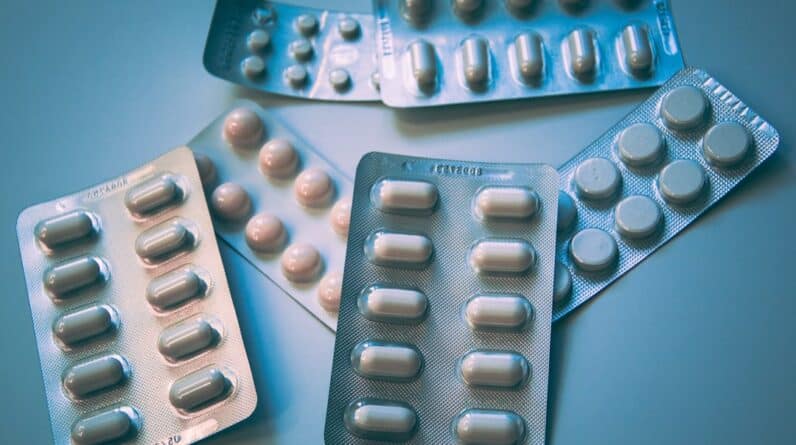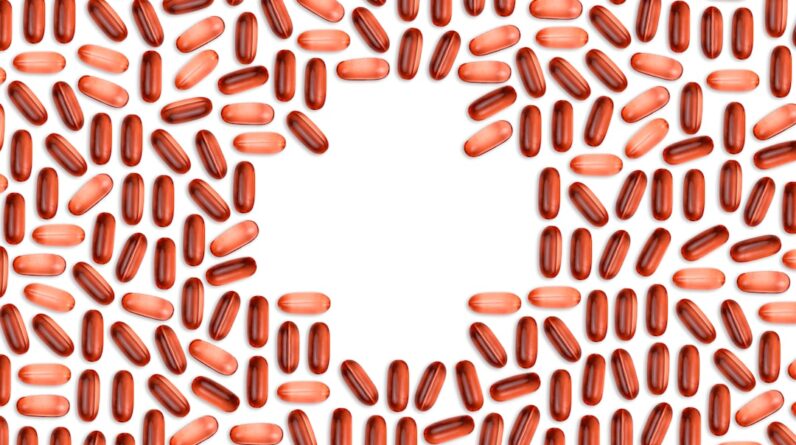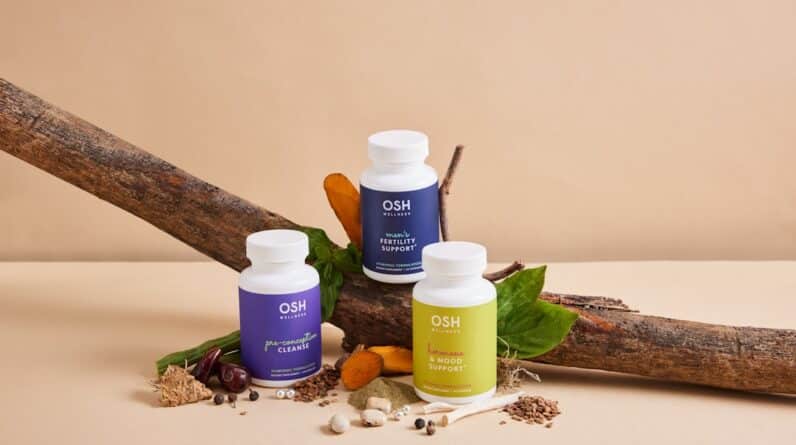Iron is an essential mineral that plays a crucial role in your overall health and well-being. It is a key component of hemoglobin, the protein in red blood cells responsible for transporting oxygen throughout your body. Without adequate iron levels, your body struggles to deliver oxygen to your organs and tissues, which can lead to fatigue, weakness, and a host of other health issues.
Understanding the importance of iron is vital for maintaining energy levels and supporting various bodily functions. Moreover, iron is involved in numerous metabolic processes, including the synthesis of DNA and the production of collagen, which is essential for healthy skin and connective tissues. It also plays a role in your immune system, helping to fend off infections and diseases.
By ensuring you have sufficient iron in your diet, you are not only supporting your physical health but also enhancing your mental clarity and emotional well-being. Recognizing the significance of this mineral can motivate you to prioritize iron-rich foods and supplements in your daily routine.
Key Takeaways
- Iron is essential for overall health, as it helps transport oxygen throughout the body and supports energy production.
- Signs of iron deficiency include fatigue, weakness, pale skin, and difficulty concentrating.
- Incorporate iron-rich foods like red meat, poultry, fish, lentils, and spinach into your diet to boost iron levels.
- Health supplements can help boost iron levels, but it’s important to choose the right one and consult with a healthcare professional first.
- To maximize the effectiveness of iron supplements, take them with vitamin C and avoid taking them with calcium or caffeine.
Signs and Symptoms of Iron Deficiency
Recognizing the signs and symptoms of iron deficiency is crucial for taking proactive steps toward improving your health. One of the most common indicators is fatigue or a general sense of weakness. You may find yourself feeling unusually tired after minimal exertion or struggling to concentrate on tasks that once seemed easy.
This fatigue can stem from your body’s inability to transport oxygen efficiently due to low hemoglobin levels, making even simple activities feel daunting. In addition to fatigue, you might experience other symptoms such as pale skin, shortness of breath, dizziness, or cold hands and feet. These signs can often be overlooked or attributed to other factors, but they are important signals from your body that should not be ignored.
If you notice any of these symptoms persisting over time, it may be worth considering whether your iron levels are adequate. Early detection and intervention can help prevent more severe complications associated with iron deficiency.
Incorporating Iron-Rich Foods into Your Diet

Incorporating iron-rich foods into your diet is one of the most effective ways to boost your iron levels naturally. There are two types of dietary iron: heme iron, which is found in animal products, and non-heme iron, which is present in plant-based foods. Heme iron is more easily absorbed by your body, so including sources like red meat, poultry, and fish can significantly enhance your iron intake.
If you enjoy these foods, consider adding them to your meals regularly. For those who prefer plant-based options or are following a vegetarian or vegan diet, there are plenty of non-heme iron sources available. Foods such as lentils, beans, tofu, spinach, quinoa, and fortified cereals can provide a substantial amount of iron.
Pairing these foods with vitamin C-rich items like citrus fruits, bell peppers, or broccoli can further enhance absorption. By being mindful of your food choices and incorporating a variety of iron-rich options into your meals, you can effectively support your body’s iron needs.
The Role of Health Supplements in Boosting Iron Levels
| Health Supplement | Iron Content | Recommended Daily Intake |
|---|---|---|
| Iron Tablets | 18 mg | 1-2 tablets |
| Iron Syrup | 15 mg | 1-2 teaspoons |
| Iron Capsules | 20 mg | 1 capsule |
While dietary changes are essential for increasing your iron intake, health supplements can also play a significant role in boosting your levels when necessary. Iron supplements come in various forms, including ferrous sulfate, ferrous gluconate, and ferrous fumarate, each offering different levels of elemental iron. These supplements can be particularly beneficial for individuals who have difficulty meeting their iron needs through food alone or those with specific health conditions that increase their requirements.
Taking iron supplements can help restore optimal levels more quickly than dietary changes alone. However, it’s important to approach supplementation with caution and awareness. Over-supplementation can lead to toxicity and other health issues, so understanding the appropriate dosage for your individual needs is crucial.
Supplements can be a valuable tool in your journey toward better health when used correctly and in conjunction with a balanced diet.
Choosing the Right Health Supplement for Iron
When it comes to choosing the right health supplement for iron, several factors should be considered to ensure you select the most suitable option for your needs. First and foremost, it’s essential to look for a supplement that provides an adequate amount of elemental iron without exceeding recommended daily allowances. Reading labels carefully will help you understand how much iron each serving contains and whether it aligns with your dietary requirements.
Additionally, consider the form of iron in the supplement. Some individuals may tolerate certain forms better than others; for instance, ferrous sulfate is commonly recommended due to its high absorption rate but may cause gastrointestinal discomfort for some people. If you experience side effects with one type of supplement, don’t hesitate to explore alternatives that may be gentler on your digestive system.
Consulting with a healthcare professional can also provide valuable guidance in selecting the right supplement tailored to your specific needs.
How to Take Health Supplements for Maximum Effectiveness

Optimizing Absorption
Taking your supplement on an empty stomach can enhance absorption; however, if you experience gastrointestinal discomfort, it may be beneficial to take it with food. Pairing your supplement with vitamin C-rich foods or beverages—such as orange juice—can further improve absorption rates and help your body utilize the iron more efficiently.
Establishing a Routine
Consistency is also crucial when taking supplements. Establishing a routine that incorporates your iron supplement at the same time each day can help you remember to take it regularly. Additionally, avoid consuming calcium-rich foods or beverages close to the time you take your supplement, as calcium can inhibit iron absorption.
Getting the Most Benefit
By being mindful of how and when you take your supplements, you can ensure that you are getting the most benefit from them.
Potential Risks and Side Effects of Iron Supplements
While iron supplements can be beneficial for those with deficiencies, they are not without potential risks and side effects. Common side effects include gastrointestinal issues such as nausea, constipation, diarrhea, or stomach cramps. These symptoms can vary in intensity depending on the individual and the type of supplement taken.
If you experience significant discomfort or adverse reactions after starting an iron supplement regimen, it’s important to consult with a healthcare professional. Another risk associated with iron supplementation is the potential for iron overload or toxicity, particularly if taken in excessive amounts over an extended period. This condition can lead to serious health complications affecting organs such as the liver and heart.
Therefore, it’s essential to adhere to recommended dosages and monitor your intake closely. Being aware of these risks will empower you to make informed decisions about your supplementation journey.
Consulting with a Healthcare Professional before Starting a Supplement Regimen
Before embarking on any supplement regimen—especially one involving iron—it’s crucial to consult with a healthcare professional. They can assess your individual health status through blood tests and other evaluations to determine whether you have an actual deficiency or if dietary adjustments alone may suffice. A healthcare provider can also help identify any underlying conditions that may contribute to low iron levels.
Additionally, discussing your specific health goals and concerns with a professional allows for personalized recommendations tailored to your unique needs. They can guide you on appropriate dosages, potential interactions with other medications or supplements you may be taking, and monitor your progress over time. By seeking professional advice before starting an iron supplement regimen, you are taking an important step toward ensuring safe and effective management of your health.
If you are looking for more information on the types of nutrition that can help with low iron levels, you may want to check out this article on the 4 types of nutrition. Understanding the different types of nutrients your body needs can help you make informed decisions about which health supplements to incorporate into your diet. Additionally, this article on what the body needs to be healthy may provide valuable insights into maintaining overall health and well-being. Don’t forget to also consider the importance of taking vitamins everyday, as discussed in this article on taking vitamins everyday for optimal health.
FAQs
What is a health supplement for low iron?
A health supplement for low iron is a product designed to provide the body with additional iron when dietary sources are insufficient. Iron is an essential mineral that plays a key role in the production of red blood cells and overall energy levels.
Who may benefit from taking a health supplement for low iron?
Individuals who may benefit from taking a health supplement for low iron include those with iron-deficiency anemia, pregnant women, menstruating women with heavy periods, individuals with gastrointestinal disorders that affect iron absorption, and athletes or individuals with high iron needs.
What are the common forms of health supplements for low iron?
Common forms of health supplements for low iron include iron tablets, iron capsules, iron liquid supplements, and iron-fortified multivitamins. These supplements may contain different forms of iron such as ferrous sulfate, ferrous gluconate, or heme iron polypeptide.
What are the potential side effects of taking a health supplement for low iron?
Potential side effects of taking a health supplement for low iron may include constipation, nausea, stomach upset, and in some cases, iron toxicity if taken in excessive amounts. It is important to follow the recommended dosage and consult a healthcare professional before starting an iron supplement.
How should a health supplement for low iron be taken for optimal absorption?
To enhance the absorption of iron from a health supplement, it is recommended to take it with vitamin C-rich foods or beverages. Avoiding taking iron supplements with calcium-rich foods or beverages, as well as coffee or tea, can also help improve iron absorption.






